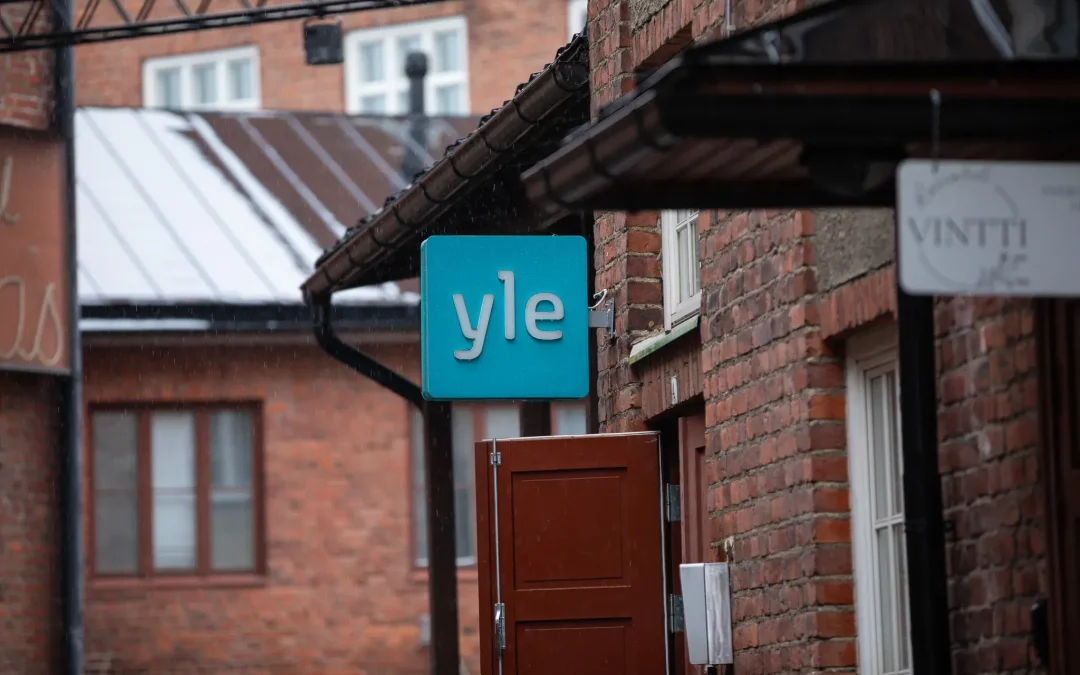Original article published in Verde (in Finnish) / Image Anton Satamo
The process of deciding the funding of the Finnish Broadcasting Company – Yle – has been absurd because it really is about politics, not finances. This discussion should not take place at all, at least not between political parties, writes Eero Karisto in his analysis.
Eero Karisto
In 2011, the political parties worked together to build a funding model for Yle that would keep politics at a distance. The current debate shows that politicians simply cannot stay away. When creating the model, it was known that when politicians claim to talk about funding, they are actually talking about how Yle conveys content that reflects their personal preferences.
In 2011, it was decided that Yle’s funding would be collected through the Yle tax. At the same time, the current level for financing was determined and an index system was agreed according to which Yle’s funding would be adjusted for changing costs. This was supposed to ensure that politicians would not be able to influence Yle’s independence through its financing. The intention was precisely to avoid the kind of interference we are seeing now.
The new act entered into force at the beginning of 2013.
Politicians couldn’t keep their hands off Yle for long. As soon as the following year the well-intentioned principle was forgotten, and since then, Yle’s funding has been influenced by the political discourse. The index-bound increases have been frozen time and time again and various working groups have sat down to reconsider Yle’s position.
The Finns Party sink their teeth into Yle funding
The cuts in Yle’s funding will not have much impact – except on Yle and its listeners, viewers and readers. Of course, other reductions of a few tens of millions of euros will be made within this government term, but those will not involve working groups’ meetings in which MPs and government officials wrangle for months, asking for more time and then failing, until finally reaching a solution. The scale is ridiculous.
Everyone knows that it is not about the money, but about journalism. Journalistic media in general are a target of the Finns Party. The Finnish Broadcasting Company is the only news and opinion platform that offers a decent alternative to the social media aggression and disinformation promoted by the Finns Party.
Arguments from the Finns Party are also increasingly openly expressing a wish to interfere with Yle’s content. In addition, the Finns Party would have wanted to exclude at least part of the opposition when deciding on Yle. Then Yle would have become more of a government media. If the governing parties take an active stance on media content and want an exclusive control of its funding, they are following the same model that is used for example in Russia and Hungary.
To avoid this, even those who wish to grant Yle the peace it needs to fulfill its role will need to help craft the compromises.
A moral choice between business and information
In addition to the general push for austerity, the Conservatives’ argument has mainly concerned the competitiveness of commercial media.
There is no consensus on how a well-functioning Finnish Broadcasting Company affects commercial media. However, the discussion comes down to a value judgement when aiming to limit the public national service in favour of promoting the interests of commercial media.
Yle’s cuts will obviously lead to less services. Merja Ylä-Anttila, the company’s CEO, promised on Ykkösaamu programme of Yle radio 1 that news and current affairs activities and the most popular programmes would remain, which is natural and understandable. The various services for marginal groups – which are an integral part of the core of the public service and which are not provided by the commercial media – are likely to suffer.
Surprisingly, the impact of the Finnish Broadcasting Company (YLE) on reducing regional segregation is rarely discussed. Yle is the only media that provides nationwide coverage and reaches people throughout the entire country.

